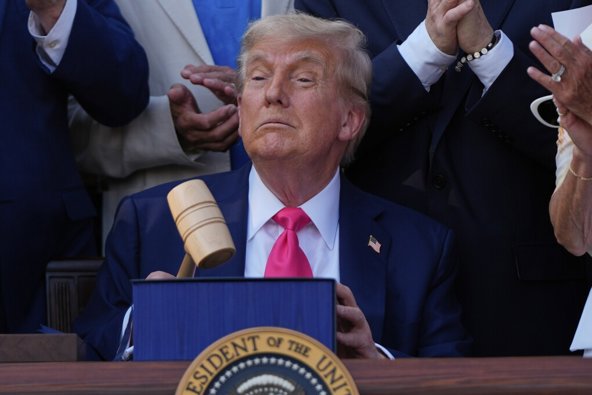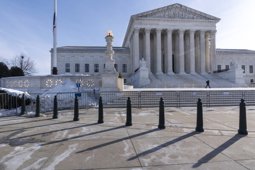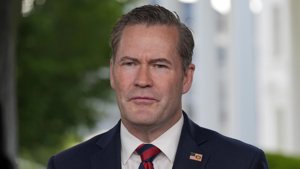
Medicaid Work Rule Fuels Political Clash in Trump’s New Bill
GOP-backed Medicaid work requirement draws sharp praise from Republicans, warnings from Democrats over coverage losses.
Republicans Tout Return to Work as Democrats Warn of Harm
The new work requirement for Medicaid, introduced in President Donald Trump’s sweeping domestic policy package, is fueling an intense political showdown in Washington. The measure mandates that able-bodied, childless adults aged 18 to 64 must work at least 80 hours per month—or participate in school, community service, or work programs—to remain eligible for Medicaid benefits.
Republican senators have praised the provision as a long-overdue step toward fostering personal responsibility and reducing government dependency. “We’ve got to get back to work,” said Sen. Tommy Tuberville (R-Ala.), who called the rule essential for curbing what he termed widespread “freeloading” among able-bodied Americans. Sen. Roger Marshall (R-Kan.) added that work “brings dignity, it brings purpose to your lives,” highlighting the need to encourage employment or education among working-age adults.
Sen. Bill Hagerty (R-Tenn.) argued that the current system disincentivizes work and unfairly burdens taxpayers, while Sen. Ron Johnson (R-Wis.) contended that the previous expansion of Medicaid—via the Affordable Care Act—encouraged “legalized fraud” by enrolling single adults who could work. The Republican message: incentivize work, cut fraud, and protect taxpayer dollars.
Supporters of the work requirement claim the policy aligns with other welfare reforms, such as the rules applied to the Temporary Assistance for Needy Families (TANF) program. Citing Congressional Budget Office estimates, they argue the new rules could remove over 10 million ineligible or nonworking adults from Medicaid rolls.
Democrats Warn Millions Could Lose Coverage
Democrats, however, are warning that the provision is designed to drop Americans from coverage, not promote employment. “That provision is not designed for efficiency or to save people money, that provision is designed to kick people off of Medicaid,” said Sen. Chris Murphy (D-Conn.). He argued that many low-wage workers—despite being employed—will struggle to meet reporting requirements and risk losing health care coverage.
Sen. Mark Kelly (D-Ariz.) asserted that the new rule could force as many as 17 million Americans off their health insurance, including 300,000 in his own state. “These are life and death situations that people are making,” Kelly said, describing the impossible choices many families face between health care, rent, and food.
Public policy analysts and advocacy groups continue to debate the real-world impact of the rule. James Agresti, president of Just Facts, countered Democratic claims, citing past welfare program data and arguing that “the notion that able-bodied adults without young children cannot work, get an education, or volunteer for 20 hours a week is absurd.”
Both sides point to projections from the Congressional Budget Office to bolster their case. Democratic staffers cite CBO figures showing up to 17 million losing insurance, though critics say those numbers are inflated by including expiring pandemic-era subsidies. Agresti notes that even major news outlets dispute some of the higher Democratic estimates as “an exaggeration.”
As the rule takes effect, its social and economic consequences will be closely watched. For now, the debate over Medicaid’s future—and the government’s role in supporting able-bodied adults—remains a flashpoint in American politics. The outcome could shape the nation’s approach to health care and welfare for years to come.






